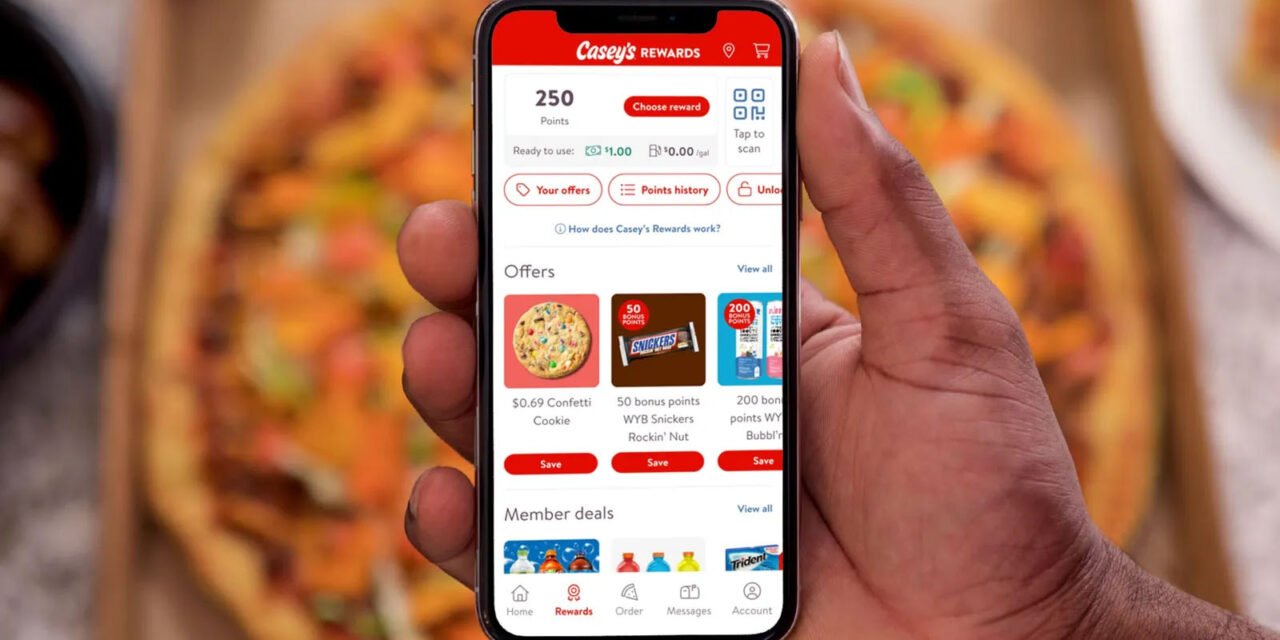Retrieved from Casey’s.
Jessica Loder|
However, they sign up new members much more slowly than quick- and full-service restaurants, according to data from Paytronix.
Dive Brief:
- C-stores in the upper half of loyalty transaction share see at least 80% of their members returning every month, according to the 2024 Loyalty Trend Report from loyalty technology company Paytronix. That rose to 85% for retailers in the 90th percentile and above.
- By comparison, QSRs at the 90th percentile and above for loyalty transaction share saw 62% of their loyalty members returning monthly and full-service restaurants in that range retained 58% of members.
- However, convenience stores significantly trailed both restaurant types when it came to acquiring new members. The top-performing QSR loyalty programs brought in on average 110 new members per store per month, well above FSRs at 70 and c-stores at 35.
Dive Insight:
Building relationships with customers by offering them value that makes them regulars is at the heart of loyalty programs. Based on Paytronix’s data, once convenience stores get loyalty members into the program, they’re making that value proposition clear.
Even c-store loyalty programs that sit at the midpoint in terms of the number of loyalty transactions industry-wide were better at retention than the majority of restaurant programs, the data shows.
This enthusiasm for their loyalty programs could be a tool that c-stores look to sharpen as they look to claim more traffic from restaurants, which have seen weak results of late.
“It’s very hard to make a one-time sale but it’s very easy to make a recurring sale to people that trust you and go to you,” said Jeffry Harrison, co-founder and president of c-store app company Rovertown, in an interview last year on loyalty apps.
Backing that up, nearly half of the adults Paytronix surveyed said they were less likely to visit a new place as opposed to somewhere they already had a loyalty membership.
Convenience stores can capitalize on this advantage by putting relevant discounts and offers in front of their customers, rather than taking a scattershot approach. About 76% of c-store loyalty campaigns use segmentation when building and sending loyalty offers and other rewards campaigns, more than restaurant counterparts, according to the report.
“According to PYMNTS Intelligence, only 44% of consumers say the offers they get are relevant, indicating a desire for higher levels of personalization,” the Paytronix report said. “The report confirms 83% of consumers are receptive to personalized messages and nearly half are likely to switch brands for more relevant offers.”
There is still room to grow, even with current technology. Neither c-stores nor restaurants used AI filters to enact more intense personalization in more than 6% of campaigns, according to the report.
Turning loyalty members into regular customers can significantly impact a retailer’s bottom line. For c-stores above the midpoint in loyalty transactions, members spent on average about $13 in store and almost $40 at the pump per visit. They also visit regularly — more than six times in the month before they were surveyed, according to the report. That’s well above QSRs, which saw about 2.5 visits in the previous month.

